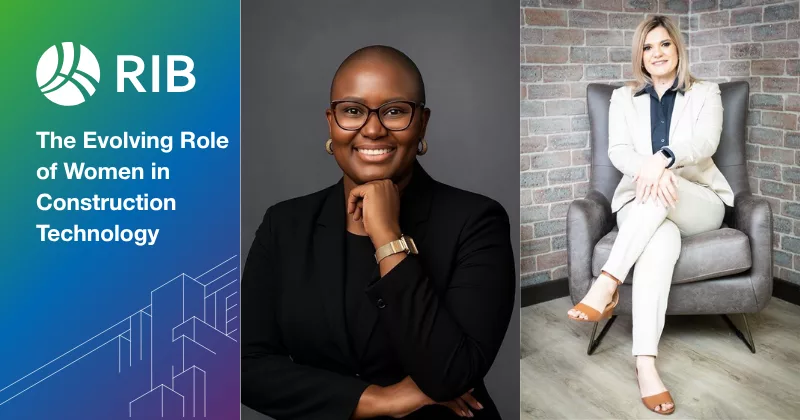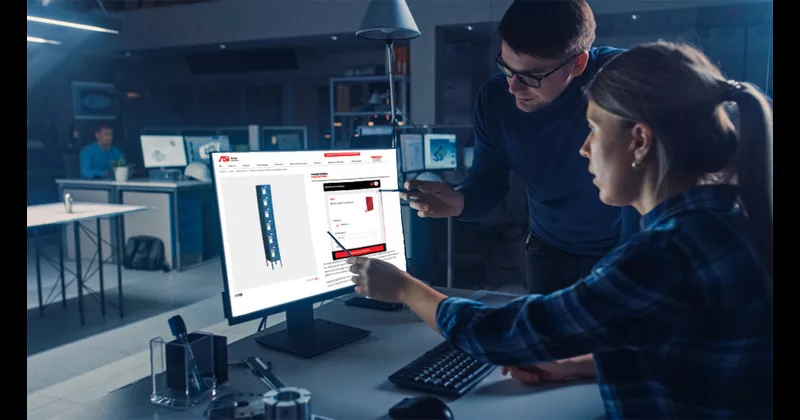3 mins read
Khanyo Makhoba and Madie Engelbrecht from RIB Software discuss the evolving role of women in construction tech

As we observe Women’s Day on 9 August 2025, it’s an apt time to reflect on the progress that has been made towards gender equality in the construction technology sector. While significant strides have been made, the underrepresentation of women in STEM fields remains a pressing issue. Two female leaders in the field reflect on the advancements that have been made and what remains to be done. Khanyo Makhoba, Business Development Executive, and Madie Engelbrecht, Senior Implementation and Training Consultant, both from RIB Software, share their insights on industry developments.
The indispensable role of diverse perspectives
The construction industry has historically been seen as a male-dominated field. However, this is rapidly changing. Women are not just contributing to major construction projects, they’re leading them, pioneering new approaches, and redefining the sector. Khanyo Makhoba has witnessed this first hand, emphasizing that diverse perspectives are not merely beneficial, they’re essential for driving innovation.
She maintains that diverse perspectives ensure that the outcomes are well-rounded and more holistic, and address a broader spectrum of challenges. The unique experiences and insights that women offer are vital in shaping technology that is inclusive, efficient and user-friendly.
Madie Engelbrecht embodies this shift. Her inspiring journey from finance to construction technology is a testament to her resilience, adaptability, and the immense value of incorporating diverse perspectives. Engelbrecht’s background as an accountant provided her with a unique lens through which to understand financial systems, reporting requirements and compliance standards. Skills that are proving invaluable in optimizing construction processes. Her ability to translate complex technical information into actionable steps, a skill she honed in finance, now empowers users to effectively utilize new construction tech tools.
Inspiring future generations
Despite this encouraging progress, systemic barriers persist. A McKinsey study highlights that women are less likely to be promoted to leadership roles compared to their male counterparts. This creates a significant gap in opportunities, leading to a deficit of female voices in decision-making positions, which is a hindrance to the diverse thought processes so vital for sustained innovation.
To ensure women’s continued interest and growth in construction technology, we must prioritize and invest in education and mentorship. A concerted effort is needed to inspire young women to pursue STEM fields. For example, RIB Software is actively partnering with universities and industry bodies to introduce students to the world of construction tech and the diverse career paths it offers. Hands-on experiences, interactive workshops and internships can ignite an early interest in the industry.
Beyond formal education, mentorship programs within construction tech companies are profoundly beneficial. As Engelbrecht notes, she was inspired by leaders like Lichelle Neethling, whose expertise and emphasis on inclusiveness resonated with her.
Mentorship can catapult individuals to greater heights, particularly for women who may sometimes feel isolated. Guidance from seasoned professionals helps young women gain experience, confidence, and invaluable insight into their roles and the broader industry. Engelbrecht, recognizing this impact, actively mentors other women entering the field.
Recognizing and celebrating the value women bring
The achievements of women in construction tech, often accomplished against significant odds, serve as inspiring examples for aspiring female leaders. Their contributions should be celebrated year-round, not just on Women’s Day. Makhoba emphasizes the importance of acknowledging the value and contributions of female colleagues, both internally and when celebrating company milestones.
Industry awards and recognition programs for women innovators in construction tech also help to increase their visibility and encourage broader engagement. By highlighting the successes of women-led projects, their development of cutting-edge technologies, and their influence on policy, we create an environment that inspires them to reach even greater heights.
Engelbrecht’s journey underscores this. While she initially faced the need to prove herself more than her male counterparts did, she turned this into a source of motivation. She takes pride in leading successful implementations at RIB, focusing on strategic collaboration and client trust. She feels that being part of an exceptional implementation team has been a rewarding opportunity that she wishes all women could experience.
A collaborative commitment to cultural shift
Industry leaders, organizations and individuals must come together to inspire women not only to participate, but to thrive in construction technology. This commitment must extend beyond mere hiring and promotion statistics; it requires a profound cultural shift within the industry to ensure that women are truly heard and respected in every decision-making process. This means giving women the authority to manage processes, and trusting them to make executive decisions, thereby encouraging inclusive working environments.
Makhoba asserts that this commitment will ensure that the construction tech industry is resilient, innovative, and truly representative of society as a whole. It will also enable organizations to tap into the full potential of every talented individual, regardless of their gender.
Engelbrecht echoes this, highlighting that a key challenge lies in the disconnect between training and real-world opportunities – the difficulty for women is to get involved in actual projects, source funding, and be appointed to leadership roles, which limits their influence on industry transformation.
Women’s Month should be more than a commemoration; it needs to be a call to action and a celebration of resilience. As Engelbrecht aptly states, it’s necessary to be visible, to speak up, and to see the opportunity to mentor and support other women who are finding their footing. Projects undeniably benefit when different perspectives are not just welcomed, but actively sought out. Ultimately, it’s not enough to occupy a seat at the table; it’s about using that seat to drive meaningful change in how we build, design and innovate.
Most Recent
3 mins read
5 mins read
5 mins read
7 mins read

Ebook











